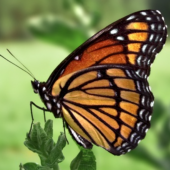
Abstract: This word journey explores flaws in our approach to cultivating environmental ethics and caring for biodiversity, especially among youths, through the lens of Carson McCullers’ classic story about the tragic but common failure of so many to achieve love between human beings.
Continue Reading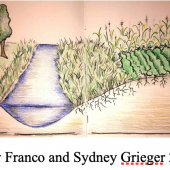
Abstract: This study examined how placemaking curricula shaped teacher candidate (candidate) knowledge, dispositions, and skills to understand, appreciate, and sustain local diversity, as evidenced through candidate reflections and products created in an elementary teacher education course integrating civic science concepts and practices into elementary classrooms. This study explored how placemaking curricula engaged community stakeholders in meaningful shared inquiry on real-world challenges, while meeting state science education standards. Placemaking inquiry projects developed by candidates focused on soil and water conservation, and sustaining diversity in schoolyard spaces. Curricula engaged candidates in learning soil and water conservation techniques from local farmers and conservation leaders, then developing and sharing co-authored civic science children’s books on conservation topics aligned to grade-level standards. As further placemaking curricula, candidates partnered with elementary teachers and students to guide schoolyard observations, designs, and models constructed to sustain diverse abilities, cultures, and ecologies. Presentations to parents and peers celebrated shared insights.
Continue Reading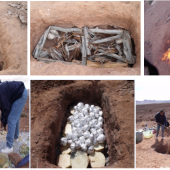
Abstract: For millennia, education for the Hualapai Tribal people was learned through intergenerational lessons taught with the family. This provided younger generations with the skills and knowledge needed to thrive in harsh desert environments. Over the past centuries tribal education has undergone numerous transitions. For the past twelve years the Hualapai Ethnobotany Youth Project has implemented an intergenerational learning program with the elders and youth of the tribal community to instill the centuries old knowledge that could only have been obtained through generations of experience. The program looks to new ways in modern times to teach the old ways in maintaining the continuity of knowledge that only the grandparents can remember.
Continue Reading
This paper describes a group of mountain museums set amidst the Eastern Alps and the Dolomites, considering their significance for the cultural identity, heritage education and sustainable tourism in South Tirol. The importance of the Mountain Museums is analyzed in connection to their setting and to the development of the communities in the area. The exhibits are analyzed considering their role in the construction of a regional identity and in the education towards the appreciation and preservation of the natural and cultural heritage of mountains, locally and worldwide. For the purpose of this research, the author visited the six buildings belonging to the net of the Messner Mountain Museum and she conversed with the director, Mr. Reinhold Messner, who is often credited as the most remarkable alpinist in history.
Continue Reading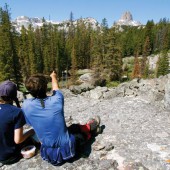
Minimum impact camping is a focus of most wilderness programs, but what example are we setting for our students before we get to the backcountry? In the past eight years NOLS has increased its focus on leading and teaching front-country sustainability by example, in addition to Leave No Trace practices taught in wilderness classrooms. This article explores some of the strategies, challenges, and successes in bringing sustainability to NOLS’ front-country operations.
Continue Reading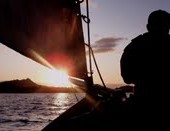
What began more than thirty years ago as a personal journey to explore my Scandinavian roots has evolved to a deep understanding of my mythopoetic connections with nature that has transformed my teaching. Through the process of exploring, learning, teaching and living in Norway, I have developed a field course for upper division students at Prescott College. From learning to sail traditional wooden boats to assisting with a harvest at a thousand year old farm, students discover the meaning of sustainability thr
ough direct experience, and how people have survived in a landscape that has directly influenced the Scandinavian cultural movements of Deep Ecology, and Friluftsliv or “Free Air Life”. The sharing of cultural wisdom handed down through generations of how to live sustainably with a landscape is rapidly disappearing and is key to our survival.
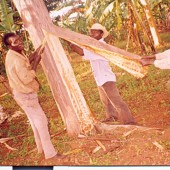
Decent life depends on nature’s provision of stable resources. In this report I explore cultural efforts embedded within nature preservation and environmental education among the indigenous Baganda and how these can be emulated to inform modern environment conservation programmes. Accordingly, environmental conservation in Buganda was guided by clearly streamlined gender roles and cultural values through spirituality and the clan system which defined the ethical relationships between human culture and the environment. The key challenges towards this include gender inequality and the associated stereotypes, the political climate in the country, and modern religions. Successful mitigations should essentially hinge on integrating indigenous conservation methods in formal school curriculum as well as undertaking sensitization and empowerment campaigns geared towards nature preservation.
Continue Reading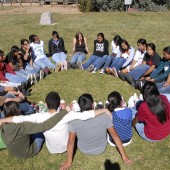
Environmental sustainability cannot be separated from social justice. Christina Selby presents a compelling case study of sustainability work grounded in cultural democracy, or processes that involve all groups in community decision-making. In the Youth Allies for Sustainability Leadership Program, young residents of Santa Fe, New Mexico, address ecological integrity through intercultural healing, relationship-building, and advocacy. Selby grounds her case in the broader theoretical work of eco-justice and transformative education. She highlights the urgent need to further integrate the defense of cultural integrity with the protection and restoration of ecological balance and economic vitality. This case study is a shining model for such integration.
Continue Reading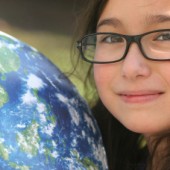
Susan Santone simply and elegantly tells us how sustainability, or ecological, economics can be made real for K-12 education. She shows us how easy it is to bring the very real, and fundamental, conceptual breakthroughs offered by sustainability economics to a grade-school curriculum through simple applicable exercises that children will easily relate to.
Continue Reading